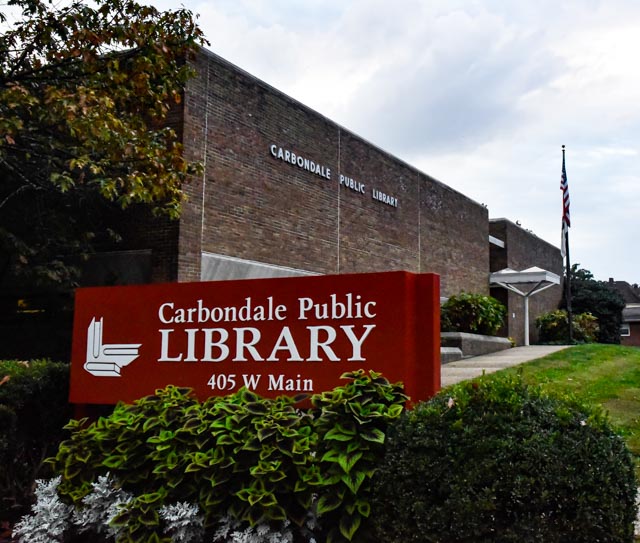Graduation policy revised
September 18, 2012
A university policy designed to help students whose grade point average falls beneath the minimum graduation requirement will soon be revised.
Students must have a 2.0 GPA in order to graduate from SIUC. However, the forgiveness policy, which Provost John Nicklow said the university has had for decades, allows students with a GPA less than 2.0 to exclude up to 10 hours of non-major courses from their GPA exclusively for graduation calculation.
The updated policy will allow up to 13 hours of coursework to be excluded from the final GPA calculation next year, and Chancellor Rita Cheng said students will be able to exclude major courses in which they received a D or an F. However, some majors require students to have a GPA higher than 2.0 to graduate. Cheng said those students will still be required to meet the major’s graduation GPA requirement.
Advertisement
Cheng said the policy was changed to 13 hours because the school has three-hour credit courses. She said certain majors might have requirements more stringent than the university.
“What we were very clear on is that if the major has requirements, including GPA requirements for graduation, that are higher than the institution, they can set those,” Cheng said. “The forgiveness policy is only the university policy, but individual colleges can have policies with higher standards.”
The policy can only be enacted if the student has received at least a 2.1 GPA for the last 60 completed hours of work at SIUC, Cheng said.
“Sometimes students take upper-level courses early in their sophomore year, and the old policy wouldn’t allow for any forgiveness of those upper-level courses,” Cheng said.
She said the policy could help students who may have taken a class before they selected a major that interests them.
Nicklow said the task force responsible for recommending the policy change looked at other universities’ forgiveness policies, including ones at Oklahoma State and Texas Tech University.
“Those were the kinds of institutions we looked at to make sure we were aligned with what they had in terms of those practices,” Nicklow said. “We don’t want to be considerably out of line with our peers, either from a student success standpoint or a competitive standpoint. We need to be doing stuff that makes us competitive in an academic marketplace.”
Advertisement*
Oklahoma State’s policy is similar to SIUC’s. According to the OSU website, the university allows forgiveness for one semester or two consecutive semesters as long as three years have passed between the request and the semesters in question. Students must have a 2.0 GPA in the last 12 semester hours to be eligible.
University of Illinois at Urbana- Champaign’s policy is almost the same as SIUC’s current one. Up to 10 hours of D- or F-coursework performed before the last 30 hours at the university before graduation can be forgiven. Students must have a 2.1 average for the last 30 semester hours.
“The policy allows for students to grow and improve in their academic performance over time and not always be hampered by poor performance oftentimes in their earlier semesters at the university,” Cheng said.
David Johnson, an associate professor who serves on the Faculty Senate, said a federal government push to tighten graduation requirements and ensure that federal money is spent appropriately are two forces the school faces when working with policies.
Johnson said students could end up pouring even more money into their college education without efficiency.
“You can see the tension, the issue where you’re trying to be efficient and be responsible with how you spend money,” he said.
Some students shared similar opinions.
“I don’t think they should necessarily do that with courses that are in (students’) majors,” Adam Kessinger, a junior from Carbondale studying civil engineering, said. “That just seems like they are lowering their standards just to appease the government when they really need to find the heart of the problem.”
However, Kessinger said he understands the policy for general education courses.
“I think that’s fine because that does happen to a lot of students,” he said. “They get in over their heads in the first two years, and I understand that.”
Rasmita Savaliya, a senior from India studying aviation technology, said she understood the policy for general education, but she questioned allowing major courses in the policy since many of those classes could pertain to students’ future goals.
Johnson said the policy is in place to show the university’s desire for student success.
“There are many cases where a student, for reasons completely beyond his or her control, ends up doing poorly,” he said. “The university tries to give that student a second chance.”
Advertisement







